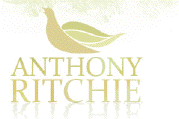

Remember Parihaka
for orchestra. Anthony Ritchie Opus 61
This is an evocative programmatic piece for orchestra, inspired by the tragic breaking up of Parihaka Pa in 1881. It is one of Ritchie's most widely performed works, and is suitable for both professionals and amateur ensembles. It has been recorded by the Auckland Chamber Orchestra on an Atoll CD (now out of stock). In September 2020, to coincide with the composer's 60th birthday, it was live streamed by the NZSO.
- YEAR: 1994
- DURATION: 9'00
- COMMISSIONED BY: Dunedin Sinfonia
- INSTRUMENTATION: for orchestra: 2222/2000/1 perc., strings
- LEVEL: 3 | Professional and semi-professional musicians
Programme Note
The starting point for this piece was a curiosity in the metal doors that covered the entrances to cells imbedded in the cliffs near Andersons Bay inlet, in Dunedin. A friend informed me that during the 19th century Maori prisoners were kept there at night, and worked on the Dunedin Harbour land reclamation during the day. Some of these prisoners were brought down to Dunedin from Taranaki in the North Island, as a result of the conflict in 1881 at Parihaka. Upon reading Dick Scott's book 'Ask that Mountain - The story of Parihaka' I learned of one of the most shocking incidents in our country's history.
The land wars of the 1860s provoked a new approach from Maori to the protection of their lands. Te Whiti, Tohu and their followers at Parihaka combatted the Pakeha land grab by organising passive resistance through a variety of means. In response to unauthorised land confiscation Te Whiti ordered the plouging of fields, building of fences and planting, all of which impeded the surveyors who wished to carve up the land for settlers. Many were arrested, offering no struggle, and soon prisons around the country were full. Despite the many injustices Te Whiti maintained his policy of passive resistance to the end. In November 1881, government troops entered Parihaka with guns and artillery. They were greeted by Maori women and children chanting songs, but no armed struggle. Te Whiti and Tohu were taken away, the Pa was broken up, and hundreds sent away to prison. Despite a Press blackout, two reporters were smuggled into the Pa, one commenting that "it was one of the saddest and most painful spectacles I have witnessed".
'Remember Parihaka' attempts to sum up my thoughts and feelings about the events at Parihaka. The slow opening is peaceful, like a sun rise, with melodic fragments that slowly unfold into a fuller, more passionate statement. Flutes and oboes announce a chant-like theme, based on an actual song composed at the time of the incident. This 'Maori' theme alternates with a more European-sounding theme on solo violin, accompanied by an Irish drum, the bowron. At the heart of the piece the various melodic ideas come together over a grinding, relentless bass, building to a climax. In the short postlude, the peace of the opening is suggested, but now it is tinged with sadness, and a slightly uneasy feeling.
This piece was written while I was Composer-in-residence with the Dunedin Sinfonia, in 1994. It was first performed in that year, under the baton of John Hopkins.
Buy the right to download a pdf score, and all parts, online, and permission to duplicate or print it as required for one orchestra: NZ$75.00
|
Orders are saved in a secure Paypal shopping cart which is viewed on a separate browser tab. When you have finished shopping, simply Check Out for a Secure Guest check out using your credit card, or to use an existing Paypal account choose Paypal Check Out. Orders are processed every 5 minutes. An email with a link to each file should arrive within 6 minutes of checking out. If it does not arrive we will likely notice during a New Zealand working day but please send an email to bellbirdpublications at gmail dot com if you have any problems with ordering. |
